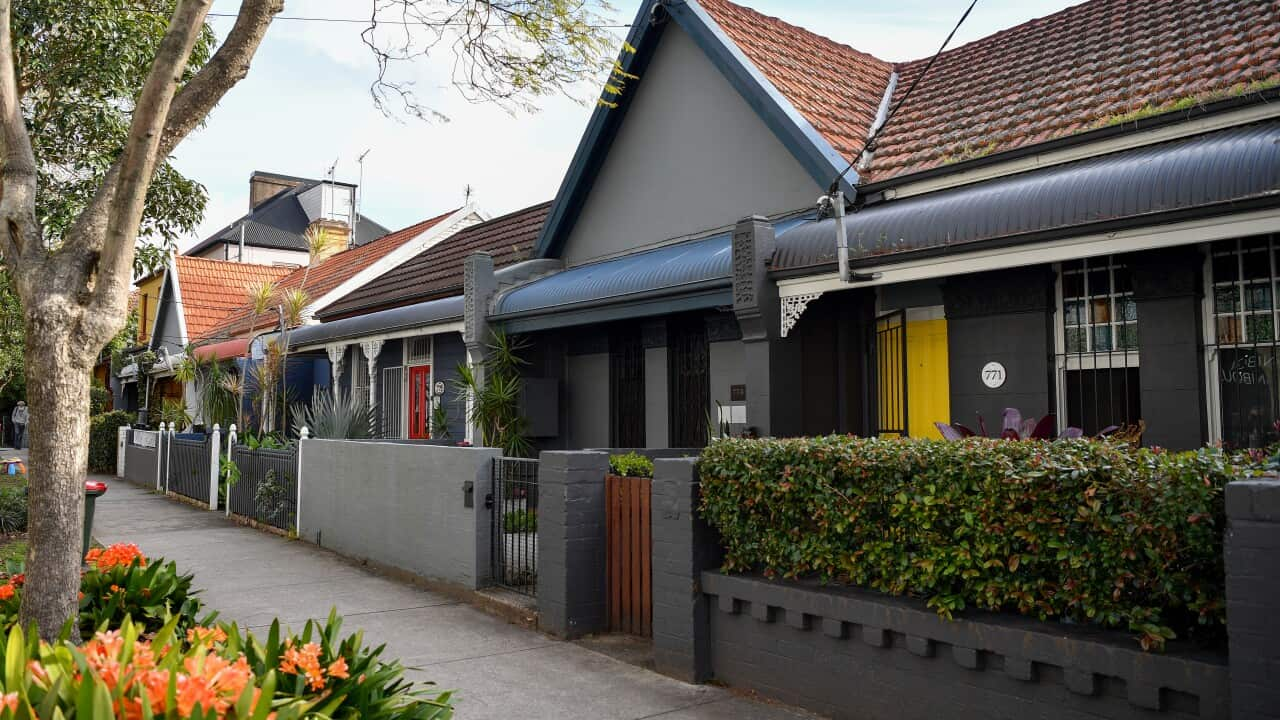KEY POINTS
- The RBA has lifted its official interest rate to 4.10 per cent.
- It paves the way for banks to increase increase rates on their variable home loan products.
- The RBA said inflation has passed its peak, but is still too high.
Mortgage holders across Australia are in for more repayment pain after the Reserve Bank of Australia (RBA) chose to hike rate to 4.10 per cent.
Following its June meeting on Tuesday, the RBA announced the cash rate would rise by 0.25 percentage points, from 3.85 per cent to 4.10 per cent.
The RBA has been raising interest rates in a bid to curb inflation back to its target range of 2 to 3 per cent.
Inflation came in at 7 per cent for the March quarter. RBA governor Philip Lowe said while it had passed its peak, it was still too high.
"It will be some time yet before it is back in the target range," he said in a statement on Tuesday.
"This further increase in interest rates is to provide greater confidence that inflation will return to target within a reasonable timeframe."

Source: SBS News / Ken Macleod
Will interest rates continue to rise?
Mr Lowe foreshadowed further rate hikes, warning that "further tightening of monetary policy may be required to ensure that inflation returns to target in a reasonable timeframe, but that will depend upon how the economy and inflation evolve".
NAB has forecast rates will reach a peak of 4.10 per cent in July before dropping to 3.10 by July 2024.
ANZ has predicted a peak of 4.35 per cent by August then a drop to 4.10 per cent by November, 2024
Deutsche Bank has also forecast further rises in the coming months and anticipates interest rates will reach 4.6 per cent in September.
ANZ senior economist Adelaide Timbrell agreed there would likely be further increases.
"What we saw in the Reserve Bank statement which they released with their decision, they said some further tightening of monetary policy may be required to ensure that inflation returns to target in a reasonable timeframe," she told the ABC.
"Elsewhere in their statement today they [the RBA] did note that the upside risk of inflation has grown so what that means is, therefore cast either by mid-2025 inflation is back to normal but the risk that inflation is too high even at that point has grown compared to when they last met."
June's rate rise follows a 0.25 percentage point increase in May, which saw .
Last month's rate rise came on the back of a pause in April, as the RBA accessed the impact of its slew of cash rate hikes on the economy.
In April 2022 Australia's official interest rate was at a record low of 0.1 per cent, but in May 2022 the RBA embarked on a series of rate rises in an effort to tame inflation.
Treasurer Jim Chalmers said the rate rise would "make life much harder for people with a mortgage".

Treasurer Jim Chalmers said many Australians would find the RBA's latest rate hike "difficult to understand and difficult to cop". Source: AAP / LUKAS COCH/AAPIMAGE
"I do expect there will be a lot of Australians who will find this decision difficult to understand and difficult to cop."
The Opposition's treasury spokesman Angus Taylor blamed the Albanese government for the rate hike, despite Mr Lowe telling Senate estimates in May that the recent federal budget "hasn’t affected our outlook for the economy or for interest rates".
“It is coming as a result of a cocktail of policies that we've seen from Labor – fiscal policy, energy policy, industrial relations policy – which are combining to create an inflationary fire," Mr Taylor told reporters.
Westpac was the first of the big four banks to respond to the RBA's latest rise, announcing on Tuesday afternoon that it would pass on the full 0.25 per cent increase to new and existing customers with variable rate home loans from 20 June.
“The majority of our customers are managing okay, but we know with each rate change it’s getting more challenging," Westpac senior executive Chris de Bruin said.
"We’re reaching out to some customers who may need additional support ... For customers in financial difficulty we are here to help and encourage them to call us early if they’re concerned.”











